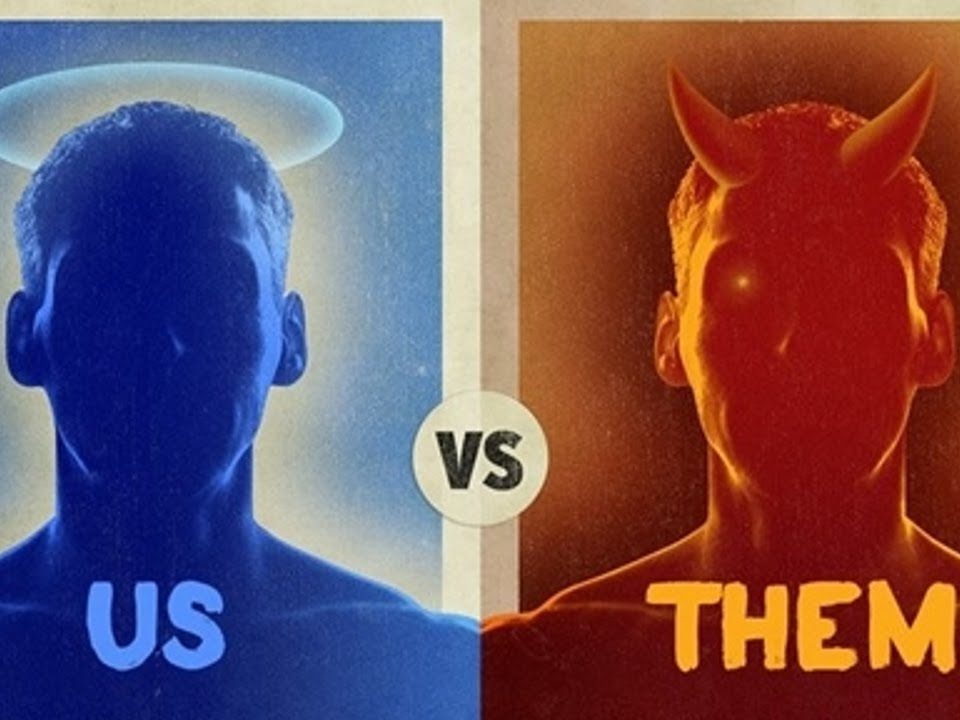Libertarianism: Big Tents & Bigger Ego’s
Libertarianism: Big Tents & Bigger Ego’s

Libertarians have always been divisive on whom to ally with in the movement, Murray Rothbard expressed that libertarians should ally themselves in coalitions with other groups and organizations to work towards common political goals as libertarians gained power. However, the question among many libertarian minds is now a simple matter of the size of the tent, free association, and an ensuing identity crisis. Many in the Libertarian Party as well as the greater libertarian movement are asking the question, who can we call not just an ally, but a fellow libertarian? At first glance, the question would seem to be an easy one to answer, but divided amongst the different camps, schools of thought, and caucuses that make up the Party and the libertarian movement there becomes a divide. With the recent outcropping of the “Libertarian Socialist Caucus” and outcries against white nationalists, libertarians are attempting increasingly to define “us” versus “them”, poser versus purity, agent provocateurs versus ideological counterparts.
The first thing libertarians must realize, both small “l” and capital “L” variety, is that libertarianism is a sliding scale of freedom. Many of the founders of libertarian thought such as John Locke and Frederic Bastiat are known as classical liberals, these are libertarians who call for government based on the model of a republic, where the rule of law only has the power to protect and serve the individual. Democracy ought to be abolished and the law shall reign supreme over the land, the law itself shall be limited to protect only life, liberty, and property. The governments should have a monopoly on force, which they will use to uphold the courts, law enforcement, prisons, fire departments and the military in a time of war, perhaps even some vital infrastructure falls in the classically liberal court and executives may be voted to office. There would even be a flag, a feeling of patriotism and nationalism may permeate, but all of this is done with the individual in mind, not the collective. This is a true socially liberal and economically conservative political ideology.
Next is a step further, this is the minarchist philosophy, which is dangerously close to both classical liberalism and anarchocapitalism. The minarchist philosophy states that the government should exist as the night watchmen, taking up as little public services as possible to protect the rights of the individual, this is typically law enforcement, the courts and military in times of war, much like classical liberalism. The key difference here is the close association with anarchism, the idea that government is a monopoly on force, and that such monopoly should exist for the very reason that supreme force should be consolidated into the hands of the state to protect individual liberty. The idea is that people created government to protect themselves from each other and preserve the rights of the individual. Minarchists may believe that taxation should be voluntary and that governments should run off service fees and other voluntary forms of income.
The last step on the libertarian scale is also the most radical, a departure from governments and taxation, even the idea of public services, flags, nationalism, state militaries, police and courts are removed from central authority. Anarchocapitalism is a market driven ideology based on a polycentric view on governance and a pessimistic view on all forms of state authority and legitimacy. Anarchocapitalists believe in no government and prefer a decentralized and voluntary system of courts and law enforcement that people voluntarily agree to be subjected to, the only supreme law is the Non-Aggression Principle or NAP, stating that even in a power vacuum the individual has the right to protect himself, his property, and his liberty from others and that is the law of the land in which all other laws fall from. Anarchocapitalist philosophers such as Murrary Rothbard believed that the state always tends to grow and gain more power over time, that no matter how small a government starts out it will always find a way to grow bigger and eventually become authoritarian. Ancaps believe that all government services can be provided by the free market and all human interaction should be voluntary and thus all forms of coercive collectivism are illegitimate.
All three ideologies have many similarities, they all fall within the sliding scale of libertarianism as we know it. They are based on the anti-collectivist idea of individualism, that the individual is the smallest minority and ought to be protected, the idea that we as individuals own ourselves and ought to be free from coercion from not only government, but other people as well, and to have liberty both socially and economically is the fertile soil in which humanity can prosper and grow the fastest. These are the prevailing branches of libertarian ideology, Walter Block once stated that about 80% of libertarians are classical liberals, about 15% are minarchists, and 5% are anarchocapitalists. What is true about all three is that they are radical departures from the way virtually every single federal, state, and local government on the planet is being run and we will all have to band together if we are ever going to realize and level of the liberation on a national scale. The question then is, who isn’t a part of our big tent? Who are we supposed to shut out to keep our ideology pure and unmolested by Leninist provocateurs, posers, and opportunists? The answer is simple.
We must oppose collectivism at all costs, the antithesis of freedom and liberty is not a specific ideology, but a vast myriad. Fascism, socialism, national socialism, social conservatism, democratic socialism, etc, are all ideologies based on the power of the state and its rulers. In these ideologies, the greater good for the greater number is emphasized over the individual, the collective becomes more important that the individual and thus the individual is sacrificed for the good of the collective. Of course, the collective does not exist, it is simply an illusion, just as a forest is only an abstraction for many individual tree’s. To see the forest for its trees is the same as seeing a nation for its people, every individual is unique with unique needs, wants, dreams and rights. All collectivist ideologies accomplish is dividing the people into finer and finer classes, putting groups of individuals against each other, tied together by no more alliance then the current political objective whether it’s more money or more spending or more war. Thus, individualism is the shining opposite of collectivism and we must oppose collectivism on all fronts in any form.
We must oppose collectivism at all costs, the antithesis of freedom and liberty is not a specific ideology, but a vast myriad.
What about the libertarian socialists and the white supremacists some may wonder? In the case of libertarian socialism, terms must be defined as scholasticism and semantics play a major role in misunderstandings in political feuds. In the early days of classical liberalism, the ideology was simply known as liberalism, to be a classical liberal was merely to be a liberal! Socialists co-opted the term liberal which is now seen as modern-day liberalism, a left leaning connotation, however the classical liberals were not without their own sequestering. In much of the world, libertarian used to mean socialist, however, classical liberals took the word as their own, which is now known much around the world as we understand it today, laissez faire, limited government individualism. Could libertarians conceivably be socialists and work towards individualistic ends? Yes and no.
Libertarian socialism to many is an oxymoron, how can somebody be simultaneously individualist but fight for a collectivist philosophy? The answer is simple, socialists can exist in an individualist society under the model of voluntary collectivism. However, individualists cannot live under a collectivist society. Therefore, some socialists are libertarians only as much as believing in a reduction of government to reach voluntary socialism. Libertarian socialism may also mean, in the old-world sense, socialism outright. This term may also be used as synonym for anarchocommunist, an anti-private property anarchist, Antifa for instance is an anarchocommunist organization. Semantics are very important here. It is also important to consider that many socialists, even the anarchocommunist variety, believe that all property is theft and that in order to achieve their political ends a violent revolution must take place to seize the means of production and liberate the people from capitalism.
It should be noted that there is a difference between Marxism, and Marxist-Leninism. Marxists are up front with the fact that they believe in collectivism, they wear their colors proudly and they are willing to talk about their ideas. Marxist-Leninists are simply Marxists, but they conceal their intent. Marxist-Leninism is a strategic vie for power in which those who are Marxists meander as sheep in wolves clothing, waiting to achieve power before enacting their ideas. This is a very real threat to the liberty movement and thus knowing your enemy in this case is extremely prudent. To defy collectivism, even anarchocommunists or libertarian socialists from calling themselves libertarians is thus paramount in preserving our ranks. To be an ally or work in coalition with these groups can be commendable when working towards common political goals, but our end games are drastically different and our ideologies are not one in the same.
The last group who has received much attention are the nationalists, typically ethno-nationalists of the white variety. To be in the libertarian movement is to be in a socioeconomically diverse movement of individuals who are all here for different reasons. To call someone a libertarian is to accept that we share much in common, for one we are both individualists, although we may disagree how small the government ought to be we agree that it should be limited to protecting the individual, we may even disagree on the very existence of government. We may disagree on whether political activism or education are the best ways to get there, we may disagree on a radical or pragmatic approach to dismantling government, we may even disagree on the NAP and its applicable use in law and society. But we must understand in all cases is that in a country of 320 million diverse individuals, for us all to mutually unite under liberty one day means we must consolidate our differences and leave them off the political playing field. Ethno-nationalists may believe in racial superiority or vanity, religious zealots may believe cultural superiority and implementation, and nationalists and patriots may disagree with anarchists on tribal significance. The only times these things matter is when they are used in a coercive matter against the individual in political theory or violence, what someone believes is their own business.
Ideas can be dangerous, as they ought to be, and libertarianism is a dangerous idea to groups of people in power and those who wish to gain power against their fellow man. For the party and the movement to define an “us” versus “them” when speaking of libertarians is one thing, for starters we must understand who we are and what we stand for and what is means to be a libertarian. When we exclude others from the label of being a libertarian, that does not mean we must be resentful of those people, the fact of the matter is that coalitions and alliances only grow our power and help us reach mutual goals that expand freedom. For those who agree with us on liberty but have ideas that we don’t like, we mustn’t turn them away, if those ideas are not used to coercively force others into a collectivist scheme, then what makes us moral paragons to deny rank to such people.



